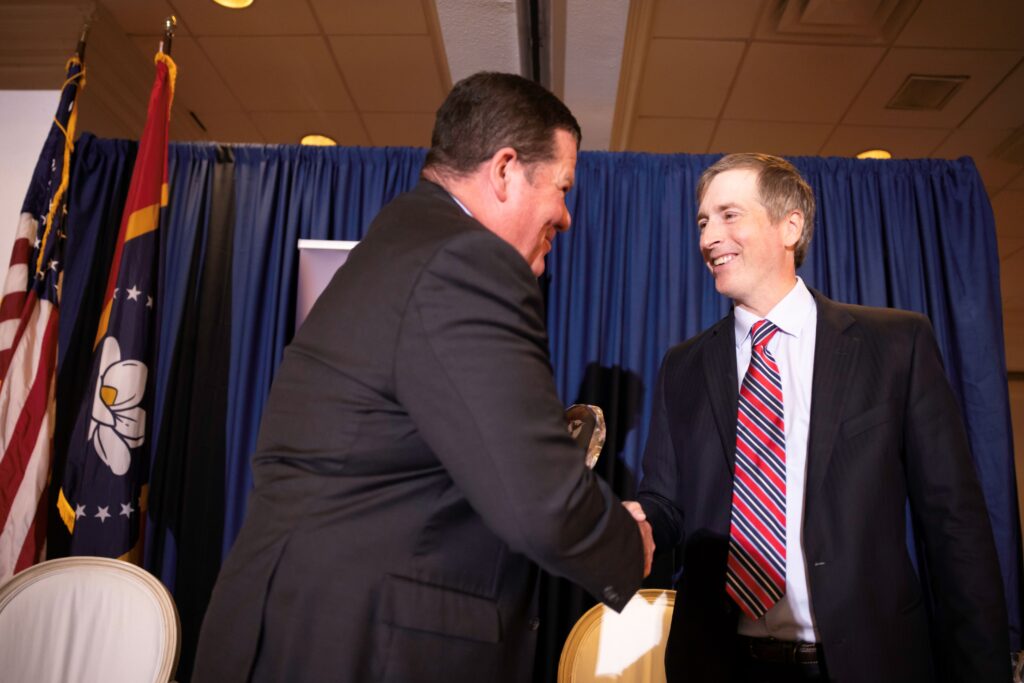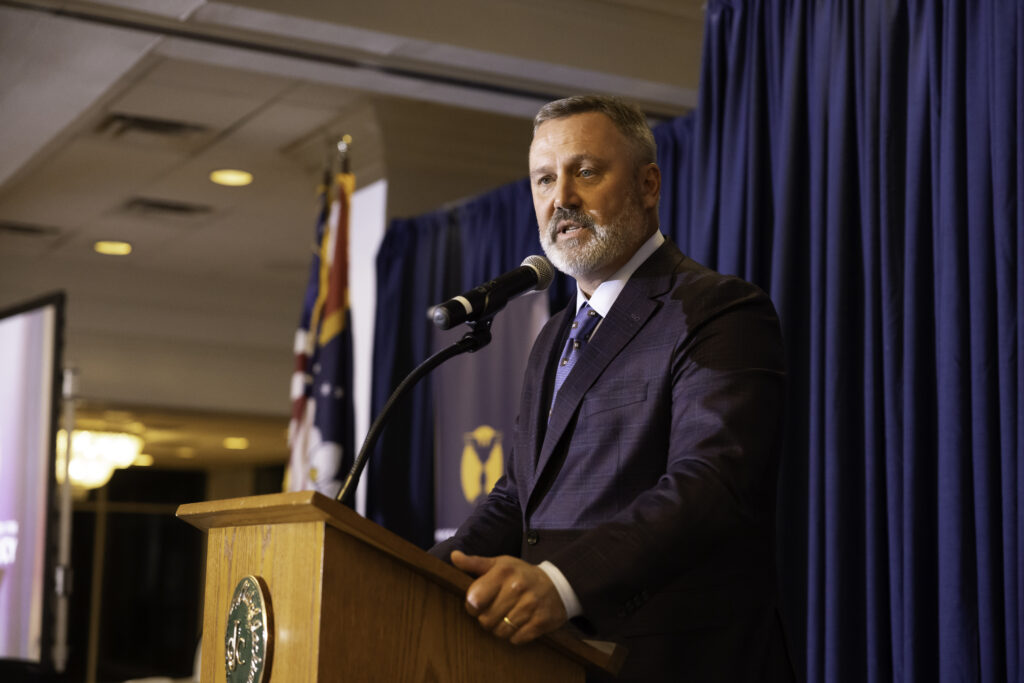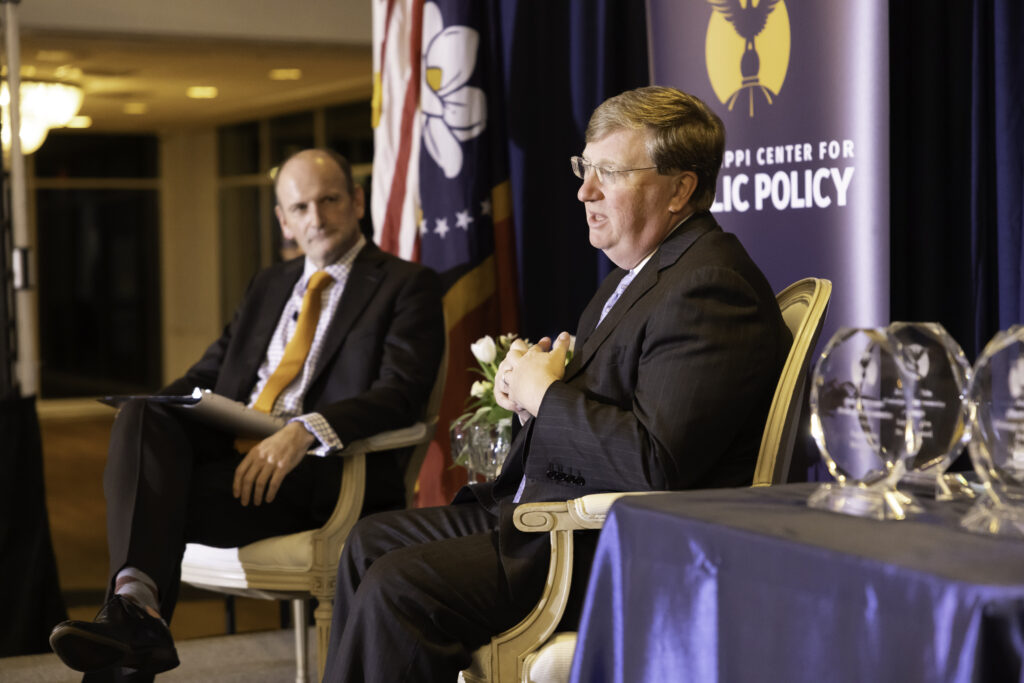Imagine facing arrest simply for posting sharp or critical comments online. Picture police at your door for expressing opposition to mass immigration. Envision a country where you could be imprisoned for years without a jury ever deciding your guilt.
This isn't dystopian fiction - it's the reality unfolding in Britain today, my former home and once part of the free world.
Earlier this year, parents Maxie Allen and Rosalind Levine from Hertfordshire were arrested in front of their children over disparaging remarks made in a private parents' messaging group. They were among the estimated 10,000 people arrested in Britain this year for online posts - more than in communist China.
Of course, not all those arrested are sent to prison. But plenty are. Lucy Connolly received a 31-month jail sentence after posting online, including a call for “mass deportation now.”
Lucy Connolly and others have received “exemplary” sentences - in other words, instead of the British courts dispensing justice dispassionately, they have handed down arbitrary sentences designed to make an example of people, as one might expect in a third-world country.
For most people arrested in these cases, the process itself - months of uncertainty, reputational damage, family stress and the inability to earn a living - is intended to be the punishment. Again, this is redolent of what you might find in a third world country, rather than the home of Magna Carta.
Clause 39 of Magna Carta declares that no free person shall be punished “except by the lawful judgment of his peers or by the law of the land” - enshrining the right to trial by jury. Yet recently, Britain’s Justice Secretary David Lammy has proposed reforms that would severely limit jury trials, restricting them largely to the most serious offenses (such as murder, manslaughter, and rape) while moving many others to judge-only hearings.
If these changes proceed, someone in Britain could be arrested, prosecuted, and imprisoned for years for something they said online - all without ever facing a jury of fellow citizens.
Is Britain still a free country? A generation ago, the question would have seemed absurd. Today, it hangs in the balance. Truly free societies do not treat their citizens this way.
England, birthplace of common law, no longer applies the law equally. In some cases, individuals have received longer sentences for online speech than others convicted in serious child grooming gang scandals.
Just last week, Luke Yarwood was sentenced to 18 months in prison for anti-immigration posts viewed only 33 times. That same period saw Demiesh Williams, who beat a man to death in a supermarket queue dispute, receive five years and three months.
Why should Americans care? Because Britain serves as a stark warning of how quickly a once-free society can slide into anarcho-tyranny: lax enforcement against repeat offenders, yet draconian crackdowns on law-abiding citizens who speak out.
To understand why the British state has turned against its own people, consider what occurred just last week on the other side of the world in Australia.
During a Hanukkah celebration on Bondi Beach, two Pakistani men - one an immigrant to Australia, the other his son - massacred 16 people for being Jewish.
Now reflect for a moment on how the Australian authorities responded.
Did Australian authorities announce any review of how such extremists entered the country—or how radical views took hold among those raised here? No word of it.
Instead, Prime Minister Albanese quickly reaffirmed that “diversity is Australia’s strength,” while pushing for tighter gun laws and stronger hate-speech restrictions.
Rather than scrutinize immigration or integration failures, the focus shifted to limiting firearms access and curbing free expression.
Officially, these speech curbs aim to stop antisemitic mob chants - like those heard outside the Sydney Opera House after Hamas’ October 7, 2023, atrocities.
You don’t need powers of prophecy to grasp that Australia’s new free speech restrictions will end up being used to lock up those that complain about Muslim migration more than they’ll ever be used to tackle extremist Islam.
Instead of acknowledging and facing up to the problem of radical Islam, the authorities in Australia are trying to make it as much about tackling "hate" and "Islamophobia".
Now do you begin to see why the authorities over in Britain have turned Soviet on their own citizens?
The British public now sees the real-world consequences of mass third-world immigration - roughly 4 million arrivals in the five years since I left - and they don’t like what they see.
Before Elon Musk’s acquisition of X, the state could suppress dissent through algorithmic censorship. Now, with that avenue limited, targeted prosecutions and heavy sentences have become the tool of choice. The situation is that dire.
Jury trials are being curtailed - not merely to clear backlogs (the official reason), but because juries often acquit those with dissident views, frustrating state efforts to silence opposition.
So how should America respond as Britain and other Western nations drift toward autocracy?
- Cherish and defend the First Amendment. Despite criticisms, the U.S. remains far stronger on free speech than most of the world, thanks to the Founders. Protect the Constitution fiercely, ensuring that even offensive or foolish speech remains free.
- Stop treating allies as America’s equals if they mistreat their own citizens: If Britain, Australia, and others start behaving like banana republics, treat their governments accordingly. Why should the United States provide defense subsidies and a diplomatic premium to a regime that fall so far short of Western standards of behavior?
- Secure your borders. Control immigration, or governments will control their citizens to suppress complaints about the fallout from uncontrolled borders.
- Stand with dissidents. During the Cold War, Ronald Reagan supported Soviet dissidents like Natan Sharansky, whose moral backing proved vital.
- Support dissidents: During the Cold War, Ronald Reagan made it clear that the United States stood with Soviet dissidents like Natan Sharansky. As Sharansky explained in his brilliant book, that moral support was crucial in the fight against tyranny. The US State Department should proactively identify and assist dissidents in Britain and elsewhere, in some cases offering asylum to those persecuted by their own governments.
A year ago, I half-jokingly suggested that if Britain deteriorated further, Donald Trump could offer every Brit under 30 the right to work in America, triggering a collapse-inducing exodus. That notion no longer feels entirely far-fetched.
For decades, Mississippi has been the punchline in national discussions about economic performance - often ranked at the bottom in income, education, and opportunity.
But something remarkable has happened in recent years: the Magnolia State is undergoing a genuine resurgence, driven not by federal handouts or gimmicks, but by principled free-market reforms.
A major national publication, the Washington Examiner, recently spotlighted this transformation in a feature titled "Mississippi Turning." The article notes that Mississippi has achieved more economic growth in the past five years than in the previous 15 combined.
This isn't hyperbole; recent data from the Bureau of Economic Analysis shows Mississippi posting some of the nation's strongest GDP growth rates, including a 4.2% real GDP increase in 2024 that ranked second nationally.
What’s fueling this engine? Bold structural changes that prioritize freedom, competition, and low barriers to opportunity.
First, labor-market reforms have opened doors for workers and entrepreneurs. In 2021, Mississippi enacted universal recognition of out-of-state occupational licenses, allowing skilled professionals to bring their talents here without jumping through needless bureaucratic hoops. The state has also slashed red tape on in-state licensing requirements, eliminating hundreds of hours of mandatory training for many everyday jobs. These changes have attracted talent, put downward pressure on remaining barriers, and made it easier for Mississippians to earn a living.
Second, historic tax reform is putting money back in people's pockets. Starting with the largest tax cut in state history in 2022, Mississippi phased in a flat 4% income tax. In 2025, lawmakers went further, enacting legislation to reduce the rate to 3% by 2030 and trigger annual cuts thereafter until the state income tax is fully eliminated—the first such move by a state in decades. This pro-growth policy rewards work and ambition while making Mississippi more competitive for businesses and families.
Third, a commitment to reliable, low-cost energy has made the state a magnet for investment. By resisting costly subsidized green mandates, Mississippi has kept electricity prices among the nation's lowest, powering energy-intensive industries like data centers and advanced manufacturing. Major announcements, including billions from companies like Amazon Web Services, underscore how affordable energy translates into jobs and capital inflows. Since 2020, the state has attracted tens of billions in private investment, fueling record-breaking economic development.The results speak for themselves: explosive GDP growth, surging personal incomes, rising university enrollments, and—for the first time in generations—net in-migration as people choose to move to Mississippi rather than away. Recent years have seen positive net migration, reversing long-standing outflows and signaling a brighter future.
This turnaround didn't happen by accident. It's the direct consequence of free-market ideas championed by policymakers and advocates who refused to accept the status quo. Mississippi is no longer just catching up; it's becoming a national model that other states are watching closely.
As we close out another productive year, moments like the Washington Examiner's recognition remind us that principled, steady work pays off. Mississippi is proving that freedom works—creating a freer, more prosperous place for all its citizens. Other states should take note: lower taxes, fewer regulations, and reliable energy are the path to revival.
Click here to read the Washington Examiner article.
Having just celebrated Thanksgiving across the United States, I’ve been reminded of what makes this holiday truly special. If you’re an American who’s grown up with the holiday your whole life, it’s easy to take it for granted. Speaking as an immigrant, let me tell you: there’s something genuinely magical about a country setting aside a national day simply to give thanks.
Most nations have a national day, and like America’s July 4th, they’re often about celebrating independence.
France’s Bastille Day marks the occasion a mob stormed the Bastille (and committed all manner of atrocities). Japan’s marks the ascension of an emperor. England, Ireland and Scotland have national days for their patron saints – with the Scots sneaking in an extra national occasion, Burns Night, when they raise a glass or three to the poet Robert Burns.
Yet, I can’t think of any country besides America that dedicates a national holiday purely to gratitude. That, to me, says something beautiful about America.
Thanksgiving may have started as an English-style harvest festival - when getting the crops in before winter was literally a matter of life and death - but it has become something uniquely American: a day to gather with loved ones, count our blessings, and say thank you for the privilege of living in this country. As a relatively recent arrival, I find the tradition uplifting.
Here are just a few of the things I found myself especially grateful for this year:
- For America itself
Every single day feels like Thanksgiving to me. I’ve now been in this country for 1,794 days, and I still don’t think I’ve woken up once without a quiet “Wow! I’m in America!” - For the astonishing welcome my family has received
Five years ago this week, I was starting to pack up in London, about to move to Mississippi - with my family to follow later. I arrived with only two suitcases, but we’ve been so warmly embraced since stepping off the ‘plane. People here didn’t just tolerate us - they opened their arms, their homes, and their hearts. - For Mississippi
This state is on the rise. In the five years I’ve lived here, there’s been more economic growth than in the previous fifteen combined. Drive around nearly any corner of Mississippi today and you’ll see good things happening. - For the Mississippi Center for Public Policy
We’re a small team, but we’re happy warriors who punch way above our weight. Team MCPP has helped deliver a string of major free-market reforms that are making life better for families across the state. I’m proud to be part of it. - For American football
I regret the decades I spent not knowing this sport existed. From high school Friday night lights to college games to even the NFL, no other game I know is as exhilarating. No other game I know can turn in an instant. - For you
If you’re reading this, you’re one of the more than 80,000 people who subscribe to our newsletter. None of the wins we celebrate would be possible without your encouragement, your ideas, and your support. So, from the bottom of my heart: thank you. You make everything we do worthwhile.
As we look ahead to a new year, thank you—from a grateful immigrant in a grateful state, in the greatest republic on earth.
I only recently learned what a “groyper” is - you may or may not be familiar with the term?
From what I can tell, a groyper is a hardline white nationalist. Often anti-Semitic, groypers are hostile to mainstream conservatives. To the extent they have a coherent agenda, groypers seem more national socialism than free-market capitalism.
Having been involved in the conservative movement for three decades, I’d hesitate to call anyone with such views conservative. Indeed, I’d argue people that think like that are essentially hardline leftists.
A generation or two ago, what it meant to be conservative tended to be defined by a small circle of influential thinkers. Figures like William F. Buckley Jr. and Russell Kirk articulated what it meant to be one of us.
Today, of course, it’s more complicated. One of the consequences of the digital revolution we’re living through is that anyone can define (and brand) themselves however they like.
If a small but loud group of groypers - whose ideas are as ugly as the green frog meme they inexplicably rally around - insist on calling themselves “conservative,” there’s a real risk that they end up shaping, in the public mind, what conservatism actually means.
Things aren’t helped by the fact that as in the early days of the printing press, when pamphleteers produced all sorts of scurrilous tracts, the digital revolution is still in the phase of rewarding all sorts of attention-seeking drivel.
Look at the mess that the left has got into in recent years, as it has been forced into taking indefensible positions. From denying basic biology (no, a man cannot become a woman) to calls for defunding the police, progressive politics in both America and Britain has increasingly been shaped by its most extreme and unrepresentative activists.
The groypers might turn out to be little more than a passing meme, but here’s why I worry about the long term direction of politics in America and the wider West.
The world we live in is the product of the idea that all people are created equal.
That’s not to say that we are all the same. But it does mean that we are all of equal worth, and that we should be treated equally under the law.
When Thomas Jefferson penned the Declaration of Independence, the principle that “all men are created equal” was a radical, revolutionary idea.
By the time Martin Luther King Jr. dreamed of a color-blind society where people are judged “not by the color of their skin, but by the content of their character,” that same principle had become the established moral orthodoxy.
Somewhere between Martin Luther King Jr.’s 1963 speech and the present day, the political left abandoned the ideal of equality before the law. In its place emerged a new framework: one that measures a person’s intrinsic worth by their position in an ever-shifting hierarchy of victimhood. Under this neo-Marxist lens, immutable characteristics - race, sex, sexuality - now determine moral value, assigning guilt to the so-called oppressors and virtue to the so-called oppressed.
This is what spawned leftwing ‘woke’ ideology. Critical race theory, critical gender theory, and related doctrines took root in academia, then seeped into corporate HR departments, government bureaucracies, and the public sector at large.
That is why, for years, American university admissions offices and major corporations have openly discriminated on the basis of race - often under the banner of “diversity” or “equity.” It is also why, in my native England - the country that gave the world the ideal of common law (a law that is genuinely common to all) - the legal system now explicitly grants preferential treatment to individuals with certain “protected characteristics.”
What if we are now witnessing the emergence of a mirror-image, right-wing “woke” ideology? What if voices on the right begin to say, “Very well - if we are no longer permitted to believe that all are created equal, then let’s not”?
The progressive left has spent decades attributing unequal outcomes to systemic oppression. What happens when the right stops arguing about the fairness of the system altogether and instead attributes those same unequal outcomes to inherent differences?
I fear the left may one day soon come to regret ever abandoning the principle that all of us, without exception, are created equal.
A few years ago, Joseph Henrich’s book The WEIRDest People in the World made a compelling case that Western exceptionalism is real. Westerners, he argued, are genuinely psychological outliers: markedly more individualistic, analytical, guilt-oriented, and trusting of strangers than the rest of humanity. These peculiar traits, Henrich contends, are what turned the West into the primary engine of modern science, innovation, and prosperity.
I happen to agree with much of Henrich’s analysis, although I am not convinced of his explanation.
The danger is that if the universalist view of human nature is abandoned - if the left’s hierarchy of victimhood is answered by a right-wing hierarchy - much of the traditional conservative narrative collapses with it.
We conservatives must be more ruthless in policing our own boundaries. We cannot flirt with ideas that are as big a threat to conservatism as socialism, and pretend they are our ideas.
FOR IMMEDIATE RELEASE
October 30, 2025
MISSISSIPPI CENTER FOR PUBLIC POLICY HONORS LEGISLATIVE HEROES AT ANNUAL GALA CELEBRATING STATE SUCCESS
JACKSON, MS – October 30, 2025 –Six of Mississippi’s leading lawmakers were presented with award to honor them for championing principled conservative policy. Rich Lowry, editor of the National Review, presented each of the winners.
Healthcare
Rep. Sam Creekmore and Rep. Hank Zuber were jointly honored for their leadership in challenging Mississippi’s Certificate of Need (CON) laws, which restrict the expansion of healthcare providers and limit patient access.

Countering DEI
Sen. Angela Hill received the award for her early and unwavering stand against the encroachment of divisive DEI (Diversity, Equity, and Inclusion) policies in Mississippi’s public universities. Long before the issue gained national attention, Sen. Hill worked to safeguard academic freedom and institutional integrity at the state’s flagship campuses.

Education Reform
Rep. Jansen Owen was recognized for leading the 2025 legislative effort to expand open enrollment through HB 1435. Though the bill passed the House with broad bipartisan support - uniting parents, educators, and lawmakers - it was ultimately blocked in the Senate.

Income Tax Elimination
Mississippi became the first state since Alaska in 1980 to phase out its personal income tax through HB1. Rep. Trey Lamar and Speaker Jason White were honored as the driving forces behind this transformative reform. Through public town halls, transparent negotiations, and superior policy arguments, the duo outmaneuvered opposition and delivered a pro-family, pro-growth tax cut that is already attracting investment and enhancing Mississippi’s competitiveness.“


These lawmakers represent the best of conservative leadership - courageous, principled, and effective,” said Douglas Carswell of the Mississippi Center for Public Policy. “Their work is making Mississippi a national model for freedom, opportunity, and common-sense governance.”
FOR IMMEDIATE RELEASE
October 28, 2025
Mississippi Center for Public Policy Celebrates Statewide Success with Governor Tate Reeves and National Review Editor Rich Lowry
Jackson, Miss. — October 28, 2025 — The Mississippi Center for Public Policy hosted its Celebration of Mississippi Success Gala on Thursday, October 23, at the Country Club of Jackson, honoring the state’s growing achievements in education, economic development, and freedom-driven policy.
Governor Tate Reeves joined Rich Lowry, editor of National Review, and Speaker of the House Jason White for an evening celebrating the policies and people shaping Mississippi’s future.
Governor Reeves spoke candidly with MCPP President and CEO Douglas Carswell about Mississippi’s remarkable economic momentum and the conservative principles guiding the state’s growth. Speaker Jason White outlined his vision for the 2026 Legislative Session, reaffirming that school choice remains his top priority for Mississippi families.
Lowry, a longtime advocate of federalism and American exceptionalism, delivered the evening’s keynote address, emphasizing that Mississippi’s success is a model for how pro-growth, pro-family policies can drive renewal in states across the nation.
“Mississippi is proving that conservative principles work — lower taxes, limited government, and personal freedom are creating real opportunities for families and businesses alike,” said Douglas Carswell, President & CEO of MCPP.
The gala brought together leaders from government, business, and civil society to celebrate the shared progress made toward a freer, more prosperous Mississippi.
For questions or inquires, please contact Anika R. Page at [email protected]




The past few days have been deeply unsettling. The assassination of Charlie Kirk, gunned down while addressing young Americans on a Utah college campus, was horrifying.
It seems clear that Charlie was targeted for his beliefs, which he expressed with remarkable clarity and conviction.
Over the past decade, Charlie Kirk emerged as one of a number of new conservative communicators who mastered digital media to connect with younger audiences who found traditional conservatism uninspiring.
Bold yet civil, Kirk fearlessly shared his views and welcomed open debate with those who disagreed. Tragically, it was during one such exchange that he was murdered.
The bleakness of the past few days has been amplified by a rush to vilify those on the “other” side. Where does this appetite for indignation that makes us want to always assume the worst about others come from? It risks driving us towards disaster.
Most liberals and progressives I know are as horrified about the events of the past week as my conservative friends. Yet, I fear that too many Americans have elevated politics to be a sort of substitute religion. It has become a belief system through which they try to make sense of the world. It won’t work.
When politics becomes your religion, you view those who share your beliefs as inherently good and those who don’t as inherently bad. This Manichean mindset erodes respect for differing opinions and abandons civility. Once you start to use your social media feed as the moral yardstick by which you judge the actions of others, you enter a world without redemption. It will be hell.
As a conservative think tank, the Mississippi Center for Public Policy relentlessly pursues practical solutions like eliminating income tax, cutting red tape, and expanding school choice to improve our state.
But what value do these victories hold if the next generation of Americans is indoctrinated with extreme ideologies? What good is tax reform today if young people are taught to see their country as irreparably beyond redemption; that only the darker parts of our history are to define us, and not the ideals of freedom that the Founders clung to?
Charlie Kirk understood the importance of teaching young Americans the principles that made the nation great. Through Turning Point USA, he educated students on freedom, free markets, and limited government.
We need to stand firm in our advocacy for these principles. Respectful but absolutely resolute.
Four years ago, we began the Mississippi Leadership Academy precisely because we recognized that shaping young hearts and minds is just as vital as pursuing legislative reform.
Our Mississippi Leadership Academy, which starts next week, is a two-part program designed to equip students with the skills and knowledge to become effective change agents in our state, ready to defend American principles and free markets. After this week’s events, the need for the Leadership Academy seems more urgent than ever.
It’s also why we run our Speaker Series, bringing leading advocates for liberty, such as Douglas Murray and Corey De Angelis to our state.
In the wake of this week’s tragedy, it’s understandable that some friends have felt despair. Two hundred forty-nine years after America’s founding, some may wonder, is this where our nation stands?
So let me say this as an immigrant that came late to your country; the United States is an extraordinary nation—the greatest republic in human history. America will remain great, able to overcome every challenge, as long as you hold fast to the founding principles and freedoms that built this nation.
Now more than ever, our mission must be to pass those principles on to the next generation.
Jackson, MS — The Mississippi Center for Public Policy (MCPP) is pleased to announce the addition of Richard Wilson as its new Chief Development Officer. With a distinguished background in campaign management, government affairs, and nonprofit fundraising, Wilson brings a wealth of experience and a proven track record of results-driven leadership to MCPP.
“We are thrilled to welcome Richard to our senior leadership team,” said Douglas Carswell, President & CEO of MCPP. “His deep understanding of public policy and extensive experience in fundraising and donor engagement will be invaluable as we continue advancing our mission to promote liberty, opportunity, and personal responsibility in Mississippi. Richard’s professional integrity and passion for service make him a perfect fit for our organization.”
Wilson joins MCPP after serving in leadership roles at the Kentucky REALTORS® Association, where he directed government affairs, political fundraising, and foundation operations. Prior to that, he spent seven years in the Tennessee Comptroller of the Treasury’s Office, most notably serving as the State’s Small Business Advocate.
“I’m honored to join the team at MCPP and support an organization that is truly making a difference in the lives of Mississippians,” said Wilson. “Throughout my career, I’ve been drawn to mission-driven work that promotes real solutions, and I’m excited to help grow the impact and reach of MCPP’s critical policy efforts.”
Wilson’s appointment marks an exciting chapter in MCPP’s ongoing efforts to advance free-market principles and strengthen civil society in Mississippi.
Speaking to my friends at Smith County Republicans the other day, someone asked me what I most loved about moving to Mississippi from London.
There are so many things I love about the Magnolia state, the more I thought about it, the longer my answer grew. I thought I’d list a few of my favorite things about life in Mississippi.
1. Southern Civility. Yes, it’s a bit of a cliché, but as an outsider I can confirm it’s the truth; Mississippi folk are the friendliest people on the planet. Southern charm makes being here such a joy.
2. Mississippi BOOM! Since I arrived almost five years ago, economic output in the state is up about a third. There’s been a massive injection of inward investment. You can feel the growth. Coming from the other side of the Atlantic, it's uplifting to live in a place that is on the up.
3. Income tax on the way out. Mississippi is on the way to eliminating the income tax entirely, like Florida, Tennessee and Texas. It is great to live in a society where taxes go down and public officials can’t expect to keep taking more.
4. Space. With 3 million people spread out over 48,000 square miles, Mississippi has lots of space. There’s a great big outdoors. Our state might not have mega cities the size of Atlanta or Chicago, but having seen the boarded up offices and shops in Chicago, I wonder if modern technology means that being more spread out is actually the way to go.
5. Stunning small towns. Too often downtown America feels abandoned, people and businesses having moved to the suburbs. One of the delights Mississippi has to offer are towns that are actually prospering. Downtown Oxford, Starkville and Natchez, for example, are full of shops and restaurants – and thriving.
6. Universities. Our family is at the stage where we’re starting to think about college options. There are so many great choices in this part of the world. Sending your kid to a southern university reduces the chance they’ll become a communist – which is why, I suspect, we are seeing such a surge in applications from outsiders wanting to study in this state.
7. High school football. The football season is about to begin and when it does, the highlight of my week will be watching Friday night football. It is a festival of everything Americana…..
8. College football. The next best thing is college football. Sure, we don’t have an NFL team, but I genuinely prefer watching SEC teams play.
9. The weather. Some folk complain about Mississippi’s heat and humidity. Coming from London where one would sometimes seldom see the sun, I love the climate here. The sun in our state is up bright and early (almost) every day. Glorious.
10. Gardening. I love gardening, and it seems you can grow almost anything here. Sweet peas. Hibiscus. This year I’ve had a bumper crop of grapes and even starting to get some mulberries.
If living in America means you’ve won first prize in the lottery of life, being in Mississippi means you got the bonus ball!
